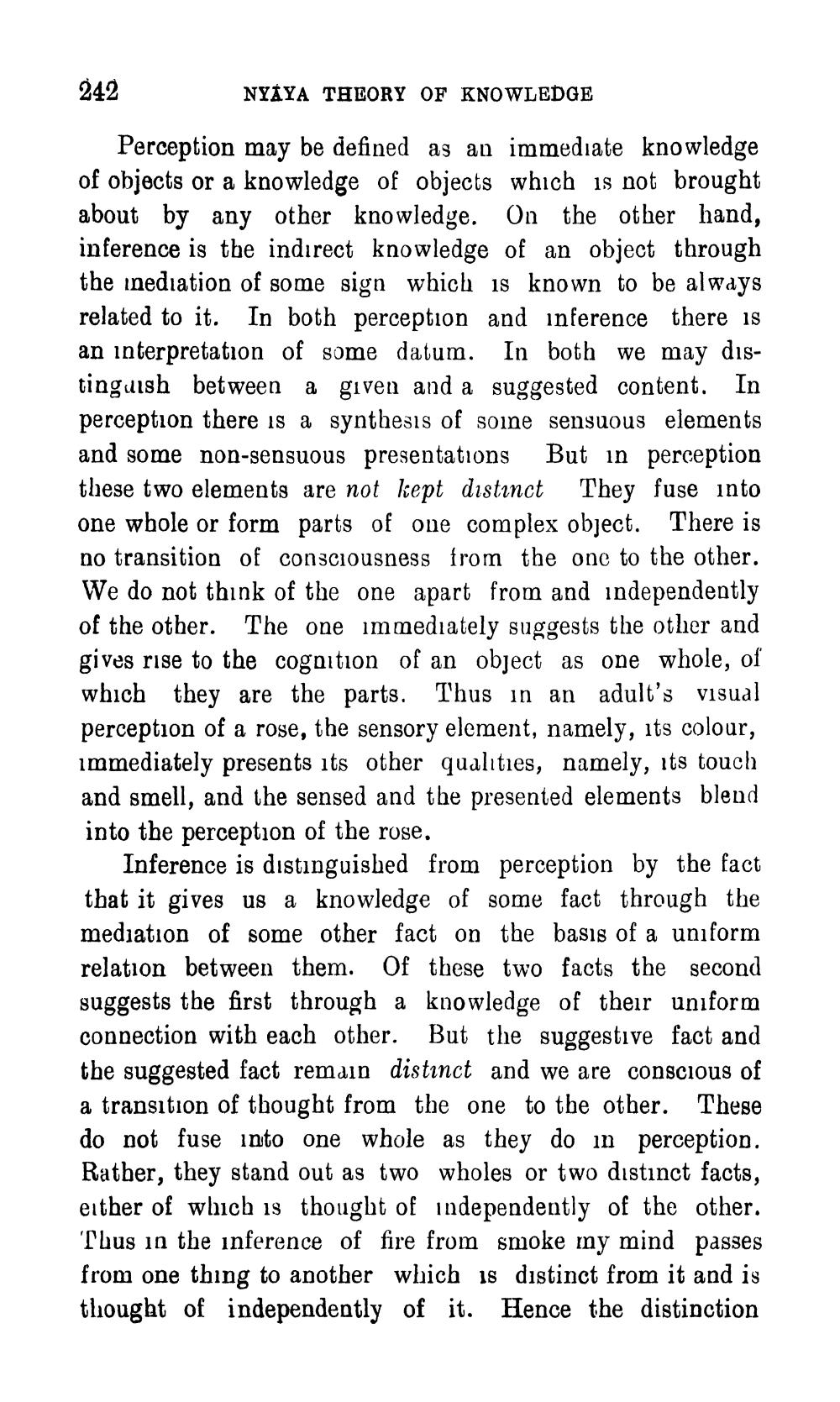________________
242
NYAYA THEORY OF KNOWLEDGE
Perception may be defined as an immediate knowledge of objects or a knowledge of objects which is not brought about by any other knowledge. On the other hand, inference is the indirect knowledge of an object through the inediation of some sign which is known to be always related to it. In both perception and inference there is an interpretation of some datum. In both we may distinguish between a given and a suggested content. In perception there is a synthesis of some sensuous elements and some non-sensuous presentations But in perception these two elements are not kept distinct They fuse into one whole or form parts of one complex object. There is no transition of consciousness from the one to the other. We do not think of the one apart from and independently of the other. The one immediately suggests the other and gives rise to the cognition of an object as one whole, of which they are the parts. Thus in an adult's visual perception of a rose, the sensory element, namely, its colour, immediately presents its other qualities, namely, its touch and smell, and the sensed and the presented elements blend into the perception of the rose.
Inference is distinguished from perception by the fact that it gives us a knowledge of some fact through the mediation of some other fact on the basis of a uniform relation between them. Of these two facts the second suggests the first through a knowledge of their uniform connection with each other. But the suggestive fact and the suggested fact remain distinct and we are conscious of a transition of thought from the one to the other. These do not fuse into one whole as they do in perception. Rather, they stand out as two wholes or two distinct facts, either of which is thought of independently of the other. Thus in the inference of fire from smoke my mind passes from one thing to another which is distinct from it and is thought of independently of it. Hence the distinction




